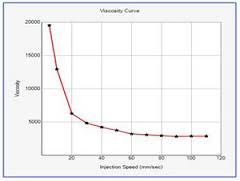

Viscosity can be of critical importance in medicine as fluids are introduced into the body intravenously. Lubricants that are too thin provide too little protection for moving parts. Lubricants that are too viscous can jam and clog pipelines. Manufacturing equipment requires appropriate lubrication to run smoothly. Some viscous fluids add texture to foods honey, for example, is quite viscous and can change the "mouth feel" of a dish. A thick potato and leek soup, for example, when it is less viscous, becomes French vichyssoise. Different cuisines also rely on the viscosity of sauces, soups, and stews.

Fats, which are moderately viscous when heated, become solid when chilled.

Cooking oils may or may not change viscosity as they heat, while many become much more viscous as they cool. Viscosity plays a significant role in the preparation and serving of food. Some oils have a more stable viscosity, while others react to heat or cold if your oil's viscosity index is low, it may become thinner as it heats, which can cause problems as you operate your car on a hot summer's day. In addition, viscosity also affects the rate of oil consumption and the ease with which your vehicle will start in hot or cold conditions. That's because viscosity affects friction, and friction, in turn, affects heat. When you put oil into your car or truck, you should be aware of its viscosity.


 0 kommentar(er)
0 kommentar(er)
